North Korea leader's sister takes 'real power' south to Olympics
- Published
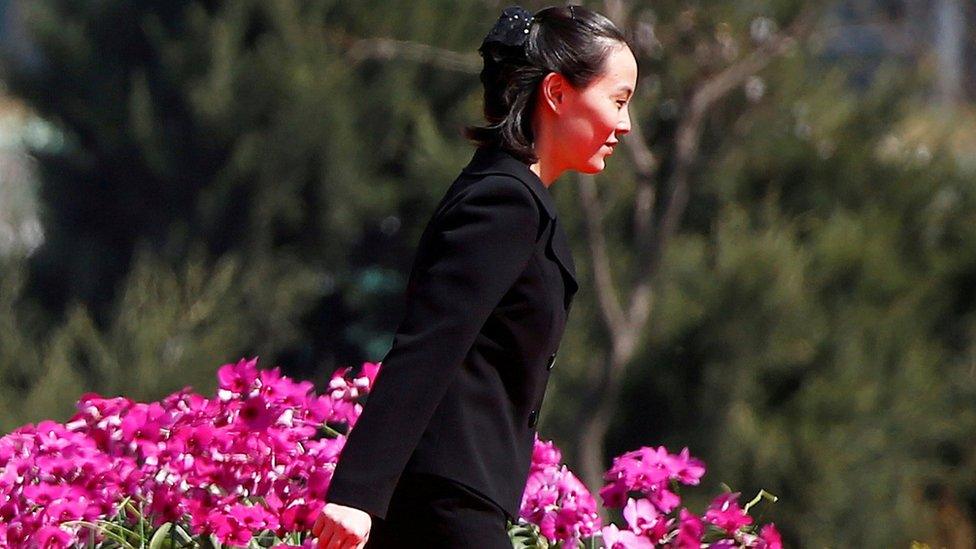
Kim Yo-jong is a leading gatekeeper for her brother, the leader of North Korea
Pyongyang has let its information out in a slow drip, gradually announcing North Korea's delegates to the Winter Olympics in South Korea and to the cultural events on the sidelines.
And now, two days before the Games begin, we have learned that Kim Jong-un's powerful sister, Kim Yo-jong, will travel south. She will be the first legitimate descendant of North Korean founder and president Kim Il-sung to visit South Korea.
Part of this is North Korea maximising the positive PR effects.
The announcement of the full delegation came following the arrivals of its athletes to the Games late last week, and a day after 10 musicians arrived in South Korea.
So now North Korea has earned itself a third day of positive media coverage about its participation in the South Korean Olympics.
It is also highly likely that Pyongyang was waiting to see the final guest list of other world leaders attending the opening ceremonies in Pyeongchang.
The North's disclosure of its full delegation occurred after US Secretary of State Rex Tillerson did not rule out the potential for some degree of interaction between North Korean and US representatives during the Games.
In Pyongyang the delegation was carefully selected. Two of them were a fait accompli by dint of the positions they hold - the head of workers' and social organisations and the head of the DPRK's leading inter-Korea relations organisation.
There is a very good chance that the delegation had been selected once North Korea agreed to participate in the Olympics and Paralympics back in early January.
Of course, Kim Jong-un and the core leadership waited until the last possible moment to announce this high-level delegation. Like that delay before a big headlining band takes to the stage, this builds anticipation and excitement. In that way, this publicity move is certainly something of which late North Korean leader Kim Jong-il would most certainly be proud.
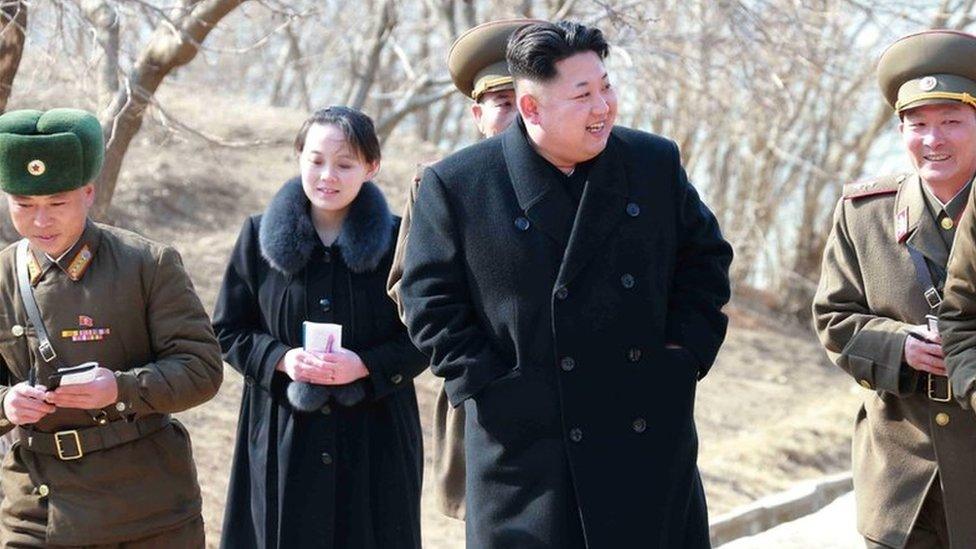
Kim Yo-jong is seen in a 2015 picture with her brother, touring a military unit
The little queen of everything
Kim Yo-jong, as leading gatekeeper for her brother, is one of the most powerful figures in North Korean politics. She has had a meteoric rise during the last five years.
As Kim Jong-un further cemented his position and consolidated his power in the blood sport of North Korean political culture, Kim Yo-jong's career continued to advance with public, formal posts in the party and state.
On a personal basis, Kim Yo-jong and Kim Jong-un have a very close relationship, cemented when they lived together in Switzerland from 1996 to 2001 and the shared trauma of seeing both their mother and father die.
Kim Yo-jong has served as her brother's chief image-maker, running North Korea's state news agency, its broadcasting, culture and arts.
As a deputy director of the Workers' Party of Korea's Propaganda and Agitation Department (PAD), Kim Yo-jong has a hand in approving, if not editing, those statements which are issued by the North Korean government or unsigned editorials and essays that provoke the world's attention.
The selection of Hyon Song-wol to lead a music group to the South, the musicians themselves and the music they will play is also something that contains Kim Yo-jong's fingerprints.
Kim Hyun-hui: Friendly North Korea 'is fake'
Ms Kim's writ extends far beyond the day-to-day running of North Korean media and culture, however.
She holds a "control tower" position working in her brother Kim Jong-un's executive office, the Personal Secretariat. In this capacity she works closely with her half-sister Kim Sul-song.
There is a lot of credible, multi-sourced intelligence that these two women working in support of Kim Jong-un are part of the decision-making behind key geostrategic issues. With a few others, they form the core of Kim Jong-un's "kitchen cabinet".
Back in 2001, when Russia's then ambassador asked Kim Jong-il about which of his sons would become successor, the late leader said his sons were "idle blockheads" and it was his daughters whom he thought had the intellect and personality as "reliable successors".
By dispatching his sister Kim Yo-jong as part of the delegation, Kim Jong-un is demonstrating a high degree of confidence in his position in North Korea. There are no elites in Pyongyang to challenge this decision.
North Korean cheerleaders arrive in the South for the Games
It also means that whomever the DPRK delegation interacts with can rest assured that their message, or even proposal, will be taken directly to Kim Jong-un, who is somewhat more removed from Pyongyang's daily policy grind than his father or grandfather. More importantly, her visit to South Korea gives her valuable experience representing North Korea publicly in another country.
She is not the first member of the Kim family to visit the South. Her uncle Chang Song-thaek, executed in 2013, was a member of an economic delegation that visited Seoul in 2002 that laid the groundwork for the Kaesong Industrial Complex, which has since been shuttered.
Due to her policy writ and family connection, she can be safely identified as "the real power" in North Korea's delegation to the South.

Who else is Pyongyang sending?
While a lot of attention is focused on Kim Yo-jong, the other members of North Korea's high-level delegation are fairly powerful people as well.
Kim Yong-nam is the 90-year-old formal head of state - one notch behind Kim Jong-un in the formal power hierarchy. Mr Kim has been in senior government or party posts since 1960 and served for many years as North Korea's foreign minister, exerting a lot of control over North Korea's diplomatic corps and foreign policy. Despite the ceremonial nature of his job and being semi-retired, Mr Kim remains a significant power player. Kim Jong-un has compelled the retirements of numerous elderly senior officials since he took power; Kim Yong-nam is not one of them.
Choe Hwi is a vice-chairman of the party. A former manager of the P'ibada (Sea of Blood) Opera Troupe, he joined the WPK Politburo as an alternate member in 2017 alongside Kim Yo-jong. Mr Choe is chairman of the state commission responsible for amateur and professional North Korean athletes. More importantly, his day job in the regime is running what are called workers' and social organisations. One of them, the Youth League, identifies talented athletes and musicians and selects them for further education and training.
Ri Son-gwon is chairman of the Committee for the Peaceful Reunification of the County, the leading DPRK organisation for its relations with South Korea. He led the North's delegation to the 9 January meeting which resulted in North Korea taking part in the Games. Until 2016 he was a senior armed forces colonel and has issued warnings against South Korean military exercises, denied the North's involvement in the March 2010 sinking of a South Korean naval ship and trashed past South Korean politicians.

Michael Madden is Visiting Scholar of the US Korea Institute at SAIS-Johns Hopkins University and Director of NK Leadership Watch, external, an affiliate of 38 North.
- Published7 February 2018
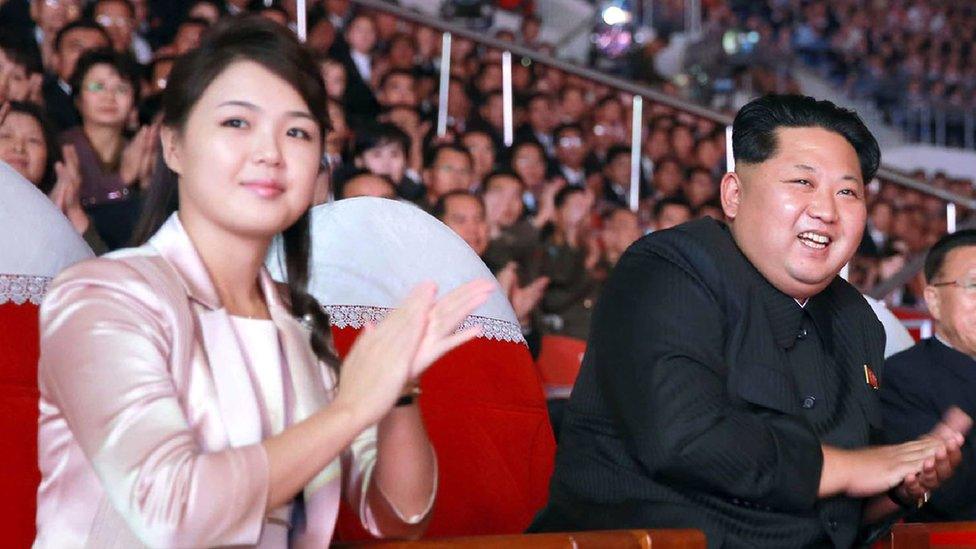
- Published29 September 2017
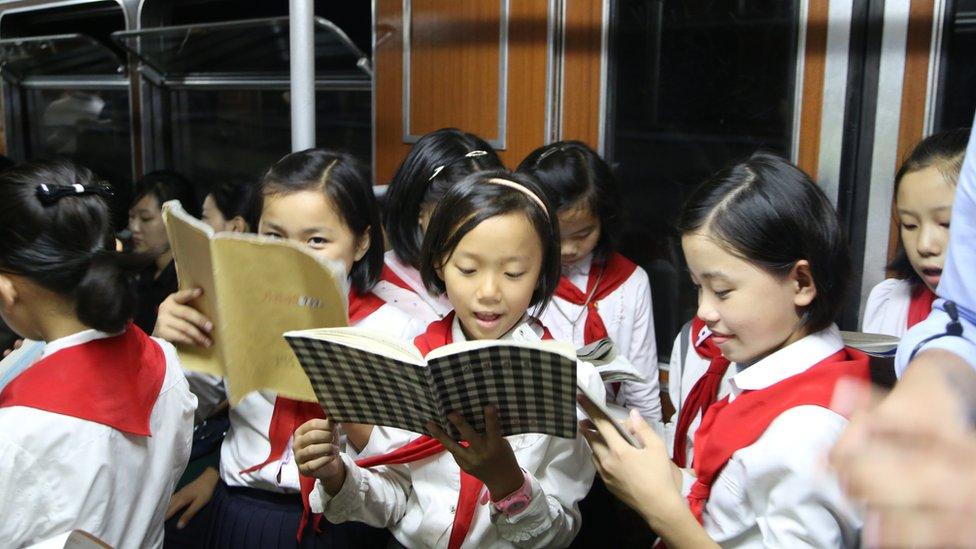
- Published5 February 2018
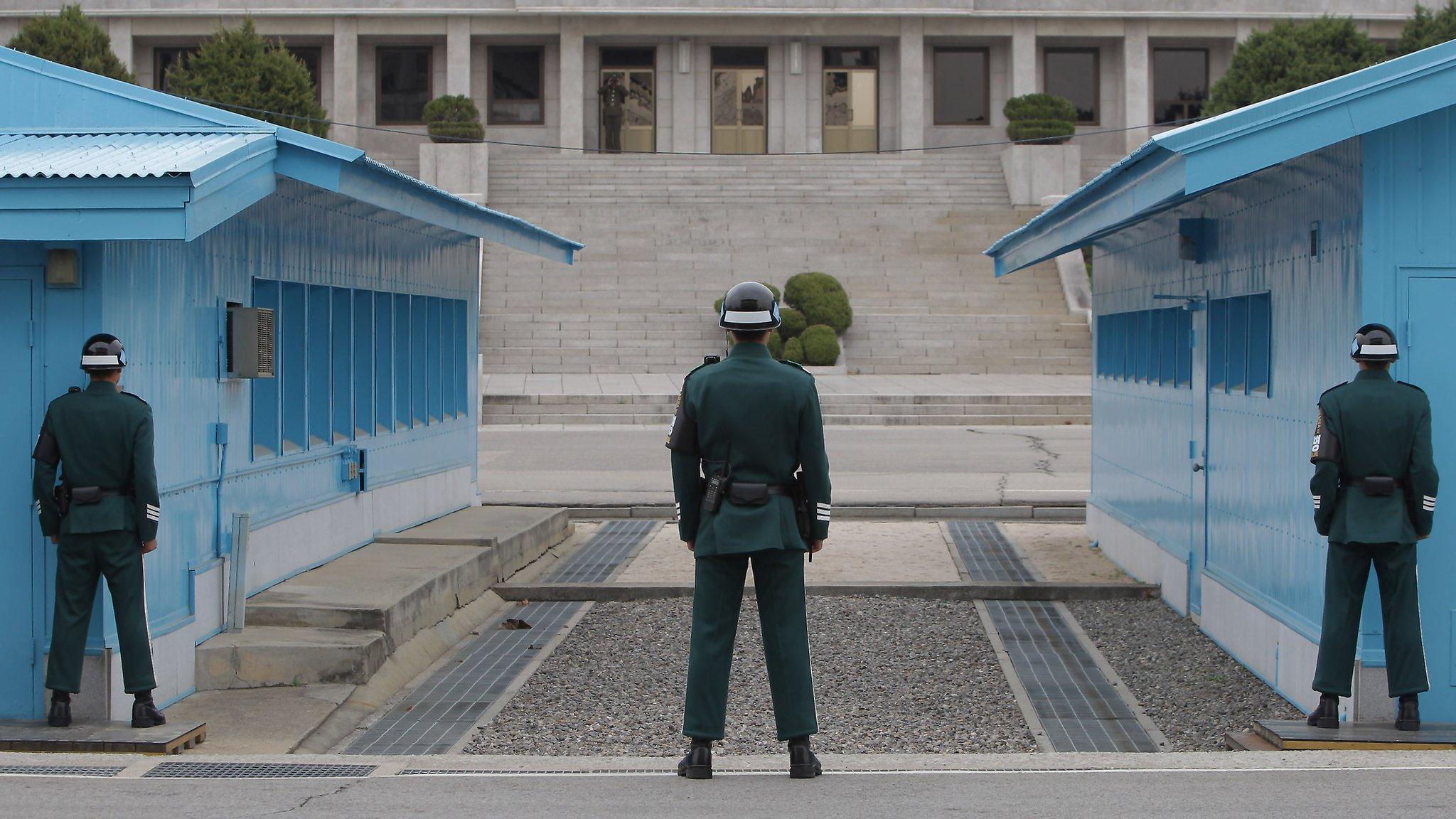
- Published21 April 2020
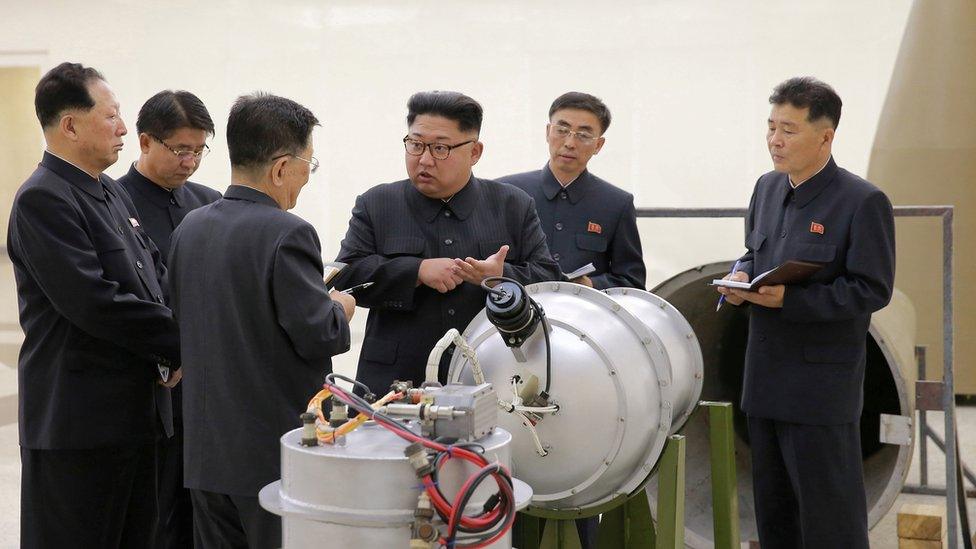
- Published16 June 2020
